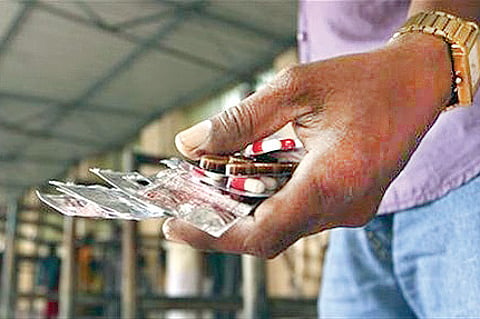Government mulls putting essential medicines under price control
A little over a month after the Finance Ministry raised ‘some issues’ over the present form of National Pharmaceutical Pricing Policy (NPPP), 2011, the Group of Ministers (GoM) headed by Sharad Pawar is all set to take a decision on bringing 348 generic drugs under a price control regime, called the National List of Essential Medicines (NELM.)
Pharmaceutical companies are selling many of their branded products at hugely inflated price, some of them by even 1000 per cent. For example, six tablets of the antibiotic Augumentin, manufactured by Glaxo-Smith Klein costs Rs 241. Once the NPPP comes into effect, it will cost only Rs 114—a reduction of over 100 per cent. Ten tablets of Taximo, manufactured by Alkin that is priced Rs 198, will cost under Rs 103, post NPPP. A draft report of NPPP-2011 states that the annual turnover of medicines listed in NELM is Rs 29,000 crore which amounts to about 60 per cent of the total domestic market, as per IMS-Health.
Currently, 74 drugs are subject to price control. If the NPPP is cleared, pharmaceutical companies will have to sell medicines listed under the NLEM at a rate affordable to a large section of the population. According to the draft policy, “formulation would be priced only by fixing the ceiling price.” It further states: “Manufacturers would be free to fix any price for their products equal to or below the ceiling price. The ceiling price would be fixed on dosage basis, such as per tablet, capsule, standard injection volume not on pack basis.”
However, there is a loophole in the draft policy. It states that the ceiling price will be revised annually up to the limit of the change in the wholesale price index for manufactured goods. Hence, the pharma companies can revise prices from the April 1 every year.
A senior Delhi government Health Ministry official told The Sunday Standard, “From the patients’ point of view, the NPPP-2011 will go a long way. Since cost of the medicines has gone up phenomenally in recent times, a certain check is needed. But at the same, the decision should be such so that the industry also survives.”
Incidentally, doctors have come under the scanner for accepting benefits like foreign junkets from pharma companies in exchange of prescribing medicines manufactured by the companies. Member of Lok Sabha Jyoti Mirdha, who is a member of the Parliamentary Committee on Health and
Family Welfare, raised the issue early this year when 15 Madhya Pradesh-based doctors flew to England and Scotland with their wives and relatives on a tour of eight days in March. The trip was sponsored by one Ahmedabad-based pharmaceutical company.
The parliamentary standing committee report of May 2012 notes: “Prescription of irrational and useless drugs by many of the doctors with ulterior motives is rampant. The Committee is, therefore, convinced that there is no other alternative but to include more essential and life-saving drugs under price regulation.” The committee was also “shocked to note that despite there being irrefutable evidence of a strong link between high prices of medicines and poverty as also despite the fact that the Eleventh Five Year Plan’s one of the avowed objectives is to include all essential drugs under a system of price regulation, the number of drugs under price control still remains at a pathetic 74.”
CP Singh, Chairman, National Pharmaceutical Pricing Authority, declined to comment on the issue. A spokesperson of the pharmaceutical major Cipla too declined to comment, stating that they would comment only after the decision on the policy is taken.
The GoM headed by Pawar had already given its seal of approval to NPPP-2011 in the last week of September this year. But, it was not tabled before the Parliament as the Finance Ministry raised some concerns, following which the issue was again back on Pawar’s table.
- Sunday Standard

